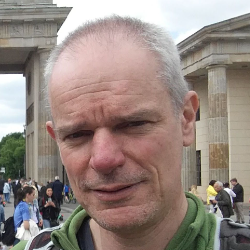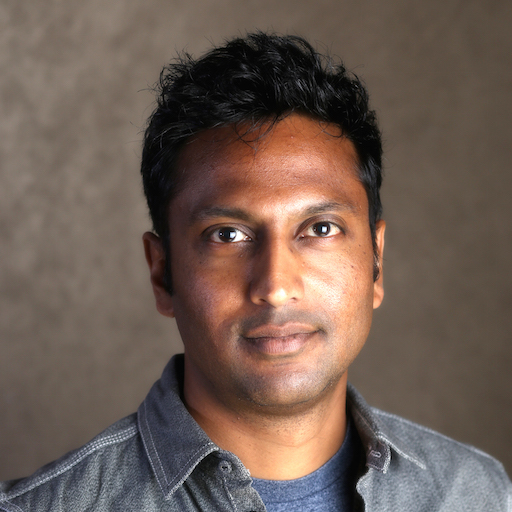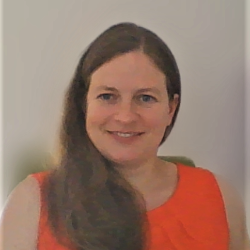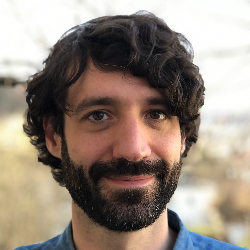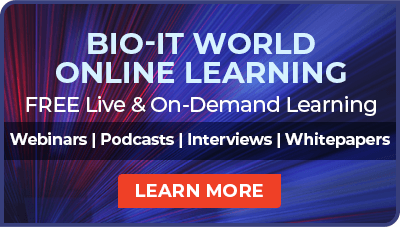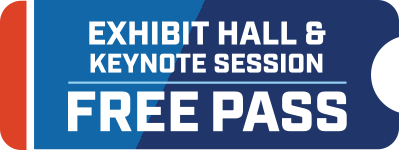R&D in Pharma
Drive Precision Medicine through the Digitalization of Pharma R&D
18 - 19 October 2022 ALL TIMES CEST
Tuesday, 18 October
Registration and Morning Coffee (Foyer)07:30
ROOM LOCATION: MOA 9
PLENARY KEYNOTE PROGRAM
PLENARY KEYNOTE PRESENTATION: To Unlock the Power of AI, It’s Time To Stop Thinking Human
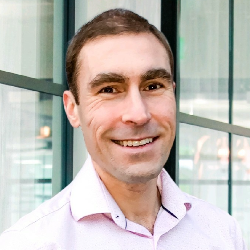 Richard Law, PhD, Chief Business Officer, Exscientia
Richard Law, PhD, Chief Business Officer, Exscientia
We’ve spent more than a decade hearing about the promise of AI for drug discovery and development. While that promise remains, it’s time to evolve our approach to unlock it. For all the buzz about AI, most companies are still using AI-assisted approaches, where humans focus on leveraging “good data” to fuel AI. Yet AI platforms, at heart, are data agnostic and make “decisions” far beyond human comprehension. No human can think in say, a 2,500-dimensional space. It’s too complicated, requires too much learning, and too much data to be managed by humans. In short, humans are still calling the shots, using AI to problem-solve along the way. To unlock the power of AI for drug development and discovery, it is time to remain patient-centric, but stop thinking like humans and allow platforms to be designed to learn and become increasingly powerful and accurate with each incremental piece of data analyzed. In this talk, we’ll discuss the power of this approach and learn about industry players who are embracing this new “AI First” way of re-engineering drug discovery processes – the leap to full, end-to-end integration of artificial intelligence – to maximize the potential of AI and machine learning to create better medicines faster and smarter.
Grand Opening Coffee Break in the Exhibit Hall with Poster Viewing (Room Location: MOA 11)10:15
ROOM LOCATION: MOA 9
DATA ACCESS, INTEROPERABILITY, AND INTEGRATION ACCELERATING DRUG DISCOVERY
How the Novartis Data42 Program is Accelerating R&D with the Reuse of Clinical Trial Data
 Gabriel Eichler, PhD, Vice President and Head of Data, Data42, Novartis
Gabriel Eichler, PhD, Vice President and Head of Data, Data42, Novartis
The massive preparation of clinical trial data for broad secondary use represents a significant challenge and opportunity for the biopharma industry. Come see how Novartis' data42 program has built out its R&D-wide data & analytics platform to enable scientists, clinicians, data scientists, and engineers to bring forth innovations to advance science and medicine. This particular session will focus on the applications and uses of the platform via a case study review.
End-to-End Data Landscape to Enable Advanced Use Cases to Bring Innovative Drugs Faster to the Patient
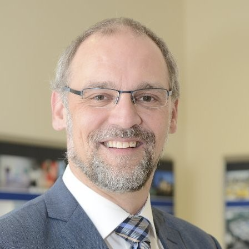 Alexander Jung, PhD, Head, Digitalization Development Biologics, Boehringer Ingelheim Pharma GmbH & Co. KG
Alexander Jung, PhD, Head, Digitalization Development Biologics, Boehringer Ingelheim Pharma GmbH & Co. KG
The data integration and fairification program in Boehringer Ingelheim R+D supports many of the accelerations needed for our pipeline. Learn about the possibilities to drive advanced data analysis and save experiments by making data accessible and interoperable between disciplines. Understand how the data culture also fosters better mutual understanding and communication between the disciplines. See, which opportunities lie in the better data access and interoperability in terms of troubleshooting, decision making, risk assessment and developability of biologicals development. Last but not least, data integration serves as an enabler for acceleration to the patient and market.
 PanHunter - Evotec’s PanOmics analytics software platform
PanHunter - Evotec’s PanOmics analytics software platform
 Erik Schliep, Head of Product, PanHunter, Evotec SE
Erik Schliep, Head of Product, PanHunter, Evotec SE
PanHunter is our omics data analysis platform and a major building block patient- and data-oriented research of the future. In this talk, we will discuss how Evotec is shifting the drug discovery paradigm by making disease understanding an integral part of early research, and how omics data is driving this change.
Networking Lunch (Room Location: MOA 11)12:55
Dessert Break in the Exhibit Hall with Poster Viewing (Room Location: MOA 11)13:55
PLATFORMS AND STRATEGIES TO FUEL DIGITAL TRANSFORMATION AND PRECISION MEDICINE
Connecting the Hemispheres: Turning Data into Outcomes
 Alexander Krupp, PhD, Digital Transformation and Information Technology Pharmaceuticals Digital Lead R&D and MAPV, Bayer Pharma AG
Alexander Krupp, PhD, Digital Transformation and Information Technology Pharmaceuticals Digital Lead R&D and MAPV, Bayer Pharma AG
Data leaders should be front and center to execute digital health strategy. In many cases, data strategy does not deserve sufficient priority and is substantially underinvested. This presentation demonstrates how to position data strategy as a top priority, ensure sufficient resource allocation to execute your data roadmap, celebrate data-driven successes to fuel a sustainable digital transformation.
Designing a Modern Cell and Gene Therapy Platform with a Patient-Centric Digital Ecosystem
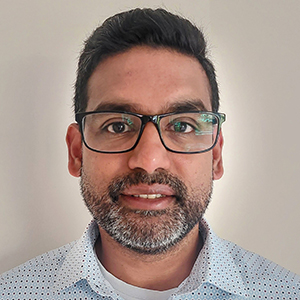 Ranjeeva Ranasinghe, PhD, Product Director, Cell & Gene Therapy, GlaxoSmithKline
Ranjeeva Ranasinghe, PhD, Product Director, Cell & Gene Therapy, GlaxoSmithKline
Cell and Gene Therapy (CGT) and Advanced Therapy Medicinal Products (ATMPs) have the potential to transform medicine. Today, delivering these medicines are costly, complex, and time-consuming. Digitisation and automation of the manufacturing and supply chain processes end-to-end focused on the patient journey with an upfront integrated approach is essential for building a scalable CGT platform. Here we present our design and architecture for a robust end-to-end CGT digital ecosystem.
 From Voice to Machine-Readable Data - Turning scientists’ notes into FAIR data in real-time
From Voice to Machine-Readable Data - Turning scientists’ notes into FAIR data in real-time
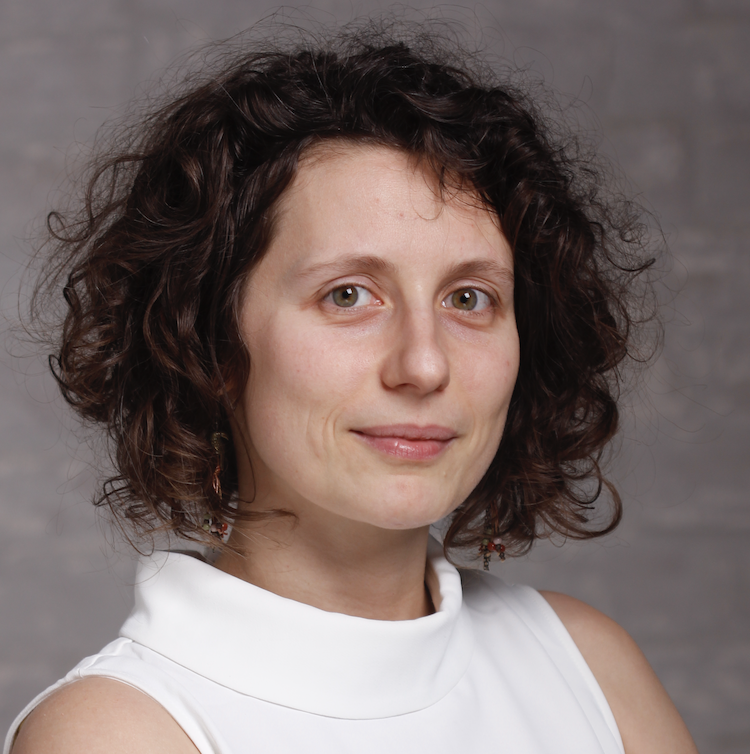 Célia Gasselin, Marketing Communication Manager, LabTwin GmbH
Célia Gasselin, Marketing Communication Manager, LabTwin GmbH
Capturing data at the bench, moreover in real-time, seems a real challenge for many organizations and associating a dedicated notetaker for each scientist is not sustainable.
What about empowering them with a digital lab assistant?
This talk will present how a digital lab assistant can provide real-time data capture and work beyond speech-to-text transcription, leveraging not only NLP capabilities but also smart processes to provide effortless FAIR data.
Harmonizing Bioassay Data Management and Analytics – Takeda's Journey
We will present the journey at Takeda to transform the bioassay management and analytics platform. The key to the transformation is the development of a bioassay protocol management platform based upon the FAIR data principle. This platform consists of an augmented BioAssay Ontology (BAO) with Takeda assay annotations, a Takeda application ontology, a de facto industry standard of ontology management platform, and a newly developed assay protocol registration system.
Session Break and Transition to Plenary Keynote16:30
ROOM LOCATION: MOA 9
PLENARY KEYNOTE PROGRAM
 Plenary Keynote Introduction
Plenary Keynote IntroductionNext-generation biopharma workflows require user-driven stewardship of data that gives your enterprise custody and validation of the full "data chain of custody": from instrument, to scientist, to filing. This data chain of custody requires a flexible private-cloud storage system that integrates business documents, large instrument files, and semi-structured metadata into a single, cross-functional storage layer that meets the scale requirements of dry scientists and the usability requirements of wet scientists.
PLENARY KEYNOTE PRESENTATION: Novartis Institute for Biomedical Research Data Strategy
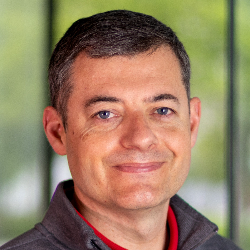 Philippe Marc, PhD, Executive Director and Global Head, Integrated Data Sciences, Novartis Institutes for BioMedical Research
Philippe Marc, PhD, Executive Director and Global Head, Integrated Data Sciences, Novartis Institutes for BioMedical Research
As part of the larger enterprise digital journey, and as part of the Novartis Research Master Plan, the Novartis Institute for Biomedical Research (NIBR) defined an updated data and data management strategy. This data strategy falls into a broader digital strategy which has many additional priority areas: Information technology, Artificial Intelligence, external science, decision support for drug discovery and early development to name a few. The NIBR data management strategy is based around four pillars:
1. Data Culture: Treat data as a corporate asset
2. Data Management: Structure and link data
3. Data Science: Develop products and insights based on data
4. Data Enterprise: Lead the enterprise on data
Welcome Reception in the Exhibit Hall with Poster Viewing (Room Location: MOA 11)17:30
Close of Day18:30
Wednesday, 19 October
Registration and Morning Coffee (Foyer)08:30
ROOM LOCATION: MOA 9
PLENARY KEYNOTE PROGRAM
PLENARY KEYNOTE PRESENTATION: Digital Twins: The Virtual Future of Medicine
 Peter Coveney, PhD, Professor of Physical Chemistry, Honorary Professor of Computer Science, Director of the Centre for Computational Science, University College London
Peter Coveney, PhD, Professor of Physical Chemistry, Honorary Professor of Computer Science, Director of the Centre for Computational Science, University College London
The purpose of building digital twins of ourselves is to create an organizational principle for modern predictive and personalized medicine. This talk will discuss the principles on which such digital twins may be constructed and used for clinical and healthcare purposes. The roles of multiscale modelling and simulation, artificial intelligence and uncertainty quantification will be described as essential elements in the drive to making actionable predictions from digital twin simulations.
Best of Show Award Ceremony and Refreshments in the Exhibit Hall with Poster Viewing (Room Location: MOA 11)10:15
ROOM LOCATION: MOA 9
ANALYTICS WORKFLOW AND PROCESSES: ACCESSING KNOWLEDGE ACROSS SYSTEMS
Improve Your Knowledge Flow: Examples that Work in Large Organisations
 Etzard Stolte, PhD, Global Head, Knowledge Management PTD, F. Hoffmann-La Roche
Etzard Stolte, PhD, Global Head, Knowledge Management PTD, F. Hoffmann-La Roche
Knowledge Management (KM) can deliver processes and tools to standardize and structure the flow of information. While it is mandatory as part of Pharmaceutical Quality by Design, even large pharma struggles with efficient implementations. This talk will present learnings from a 7-year KM strategy that has been largely successful; including how to build trust early on through cool technology, balance technology and change (OCM), ensure focus through start-up mentality, improve velocity with R&D IT & digital, focus on scale-out for impact, and other topics.
What’s Next? Enabling New Digital Ways of Working in Drug Discovery by Making Use of Scientific Operational Data
Over the past years, the focus of FAIRification initiatives in drug discovery was mostly on scientific in vitro and in vivo data. Operational data is still mostly managed in data silos of bespoke systems or Excel sheets but offers great potential for speeding up the cycle times of drug discovery phases and augmenting decision making. The talk will present a suite of products currently in implementation at Roche Pharma Research and Early Development (pRED) to consistently capture and utilize scientific operational data with the goal to significantly boost drug discovery effectiveness while also catalyzing innovation and flexibility.
 Integrating Drug Discovery Data and Workflows with Dotmatics Solutions
Integrating Drug Discovery Data and Workflows with Dotmatics Solutions
 Melanie Nelson, Senior Solutions Architect at Dotmatics, Dotmatics, Inc.
Melanie Nelson, Senior Solutions Architect at Dotmatics, Dotmatics, Inc.
Integrating data across disparate departments and scientific workflows has been a long-standing challenge in drug discovery. Dotmatics Solutions have been designed to address this challenge. The Solutions bring together Dotmatics’ enterprise scientific platform and the specialized applications scientists need to analyze their data to improve collaboration and accelerate the process of using data to inform insights and decisions.
Networking Lunch (Room Location: MOA 11)12:40
Dessert Break in the Exhibit Hall with Poster Viewing (Room Location: MOA 11)13:40
DATA STRATEGY: DRIVING BETTER DECISION-MAKING AND ORGANIZATION GROWTH
Advanced Analysis and Interpretation Approaches in Support of Drug Discovery
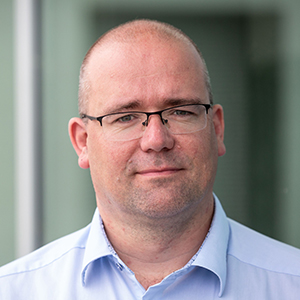 Hugo Ceulemans, PhD, Scientific Director, Discovery Data Sciences, Janssen Pharmaceutica NV
Hugo Ceulemans, PhD, Scientific Director, Discovery Data Sciences, Janssen Pharmaceutica NV
Advanced machine learning approaches enable the predictive models that support drug discovery to also benefit from unconventional data sources. A first example is the use of microscopy images for systematic de-risking. A second is the leveraging of multiparty data through privacy-preserving and federated learning. In MELLODDY, ten pharma all realized aggregated model improvements by training on 2.6B+ confidential experimental activity datapoints, documenting 21M+ physical molecules and 40K+ discovery-relevant assays.
Partnering with Pharma at Population Scale: A National Clinical & Research Platform for Advancing Precision Medicine
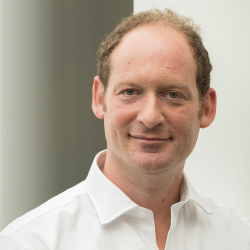 Parker Moss, Chief Commercial & Partnership Officer, Genomics England
Parker Moss, Chief Commercial & Partnership Officer, Genomics England
This talk will explore how Genomics England is collaborating to help research partners maximize discovery in our research environment and enable our shared vision for the future to enable deeper genomic research through multimodal data, bringing genomic healthcare to all who need it.
How to Effectively Measure the Data Maturity of the Organization and Use the Outcomes to Drive the Data Transformation Journey
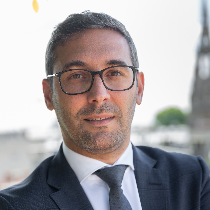 Lucas Quarta, Partner & Associate Director, Boston Consulting Group
Lucas Quarta, Partner & Associate Director, Boston Consulting Group
Organizations are investing and making data a strategic priority for organization growth, productivity, and innovation. In this session we will share how organizations measure data maturity in a standard way. The recent Boston Consulting Group’s (BCG) Data Capability Maturity (DACAMA) survey gives a detailed overview of more than 1,100 companies who participated worldwide, representing nine major industry clusters. These survey results help to validate the prioritization and funding of data initiatives in the organization transformation journey. We will share a use case on how one of the client organizations used these results to prioritize their data capabilities that add value to their organization growth.
Close of Conference15:45



